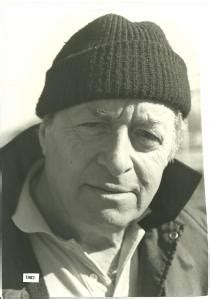A Quote by Edward Bulwer-Lytton, 1st Baron Lytton
A fiction which is designed to inculcate an object wholly alien to the imagination sins against the first law of art; and if a writer of fiction narrow his scope to particulars so positive as polemical controversy in matters ecclesiastical, political or moral, his work may or may not be an able treatise, but it must be a very poor novel.
Related Quotes
A fine memoir is to a fine novel as a well-wrought blanket is to a fancifully embroidered patchwork quilt. The memoir, a logical creation, dissects and dignifies reality. Fiction, wholly extravagant, magnifies it and gives it moral shape. Fiction has no practical purpose. Fiction, after all, is art.
The poet needs a ground in popular tradition on which he may work, and which, again, may restrain his art within the due temperance. It holds him to the people, supplies a foundation for his edifice; and, in furnishing so much work done to his hand, leaves him at leisure, and in full strength for the audacities of his imagination.
Unless a writer lives with a periodic delusion of his greatness, he will not continue writing. He must believe, against all reason and evidence, that the public will experience a catastrophic loss if he does not complete his novel. The public is just clamoring to give him his fame. From the book Dare to be a Great Writer: 329 Keys to Powerful Fiction by
In the greatest fiction, the writer's moral sense coincides with his dramatic sense, and I see no way for it to do this unless his moral judgement is part of the very act of seeing, and he is free to use it. I have heard it said that belief in Christian dogma is a hindrance to the writer, but I myself have found nothing further from the truth. Actually, it frees the storyteller to observe. It is not a set of rules which fixes what he sees in the world. It affects his writing primarily by guaranteeing his respect for mystery.
There's the fact that American fiction is basically the most apolitical fiction on the globe. A South American writer wouldn't dare think of writing a novel if it didn't allude to the system into which these people are orchestrated - or an Eastern European writer, or a Russian writer, or a Chinese writer. Only American writers are able to imagine that the government and the corporations - all of it - seem to have no effect whatsoever.
Burroughs called his greatest novel 'Naked Lunch,' by which he meant it's what you see on the end of a fork. Telling the truth. It's very difficult to do that in fiction because the whole process of writing fiction is a process of sidestepping the truth. I think he got very close to it, in his way, and I hope I've done the same in mine.
No one can teach writing, but classes may stimulate the urge to write. If you are born a writer, you will inevitably and helplessly write. A born writer has self-knowledge. Read, read, read. And if you are a fiction writer, don't confine yourself to reading fiction. Every writer is first a wide reader.
No one can teach writing, but classes may stimulate the urge to write. If you are born a writer, you will inevitably and helplessly write. A born writer has self-knowledge. Read, read, read. And if you are a fiction writer, dont confine yourself to reading fiction. Every writer is first a wide reader.




































